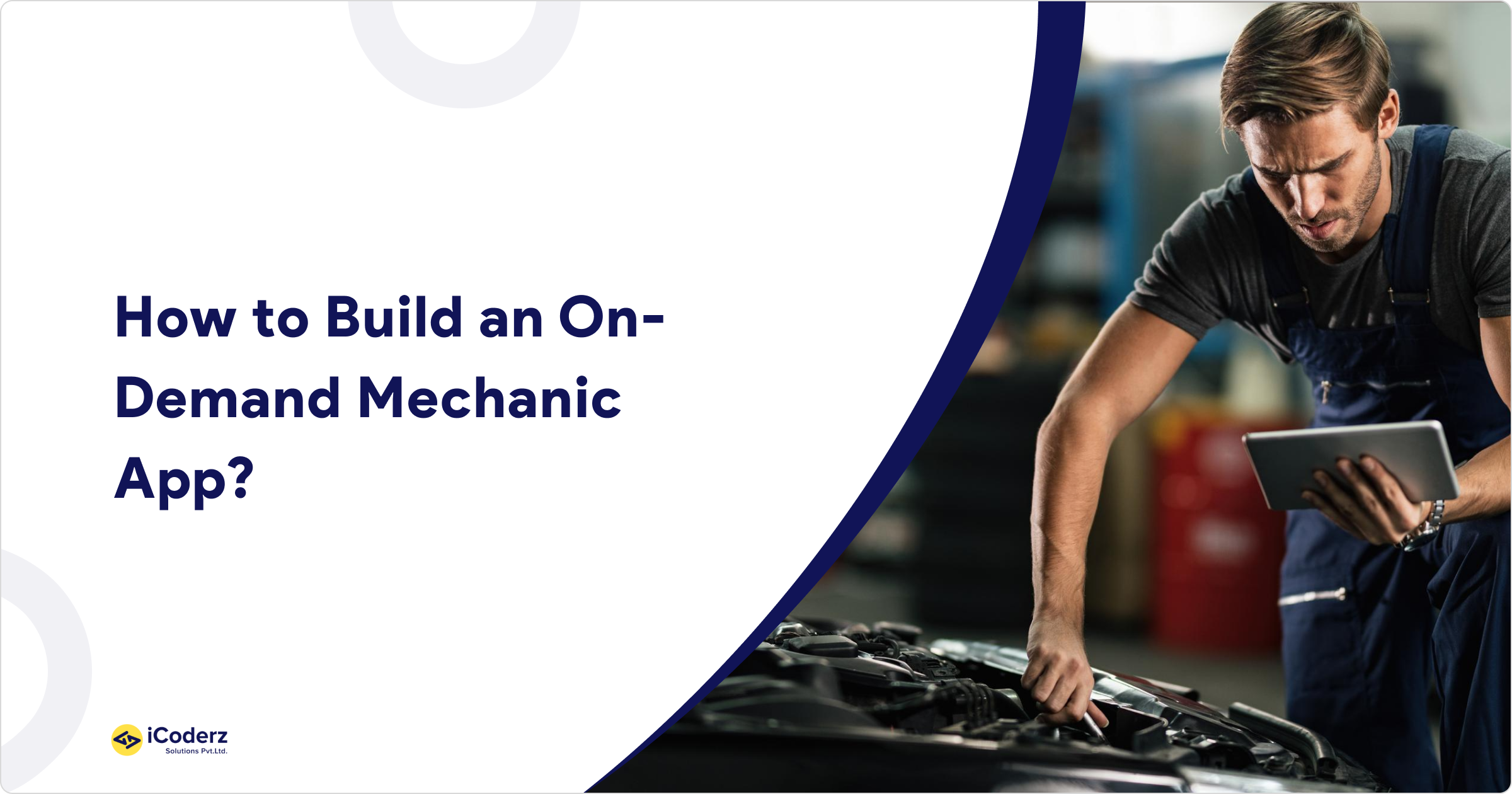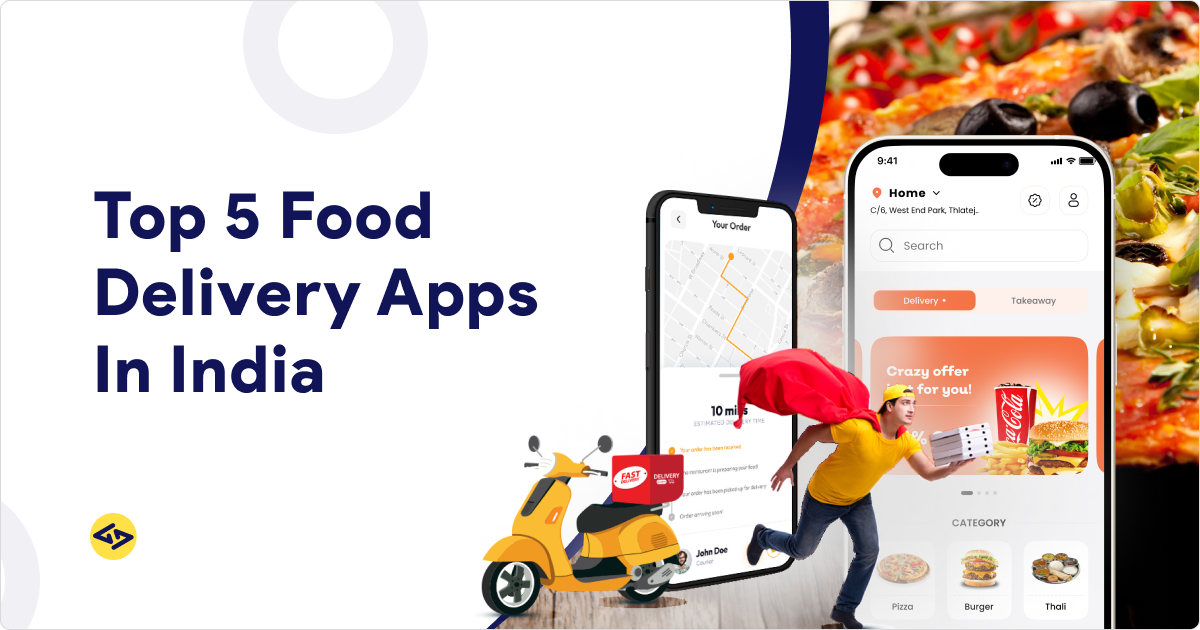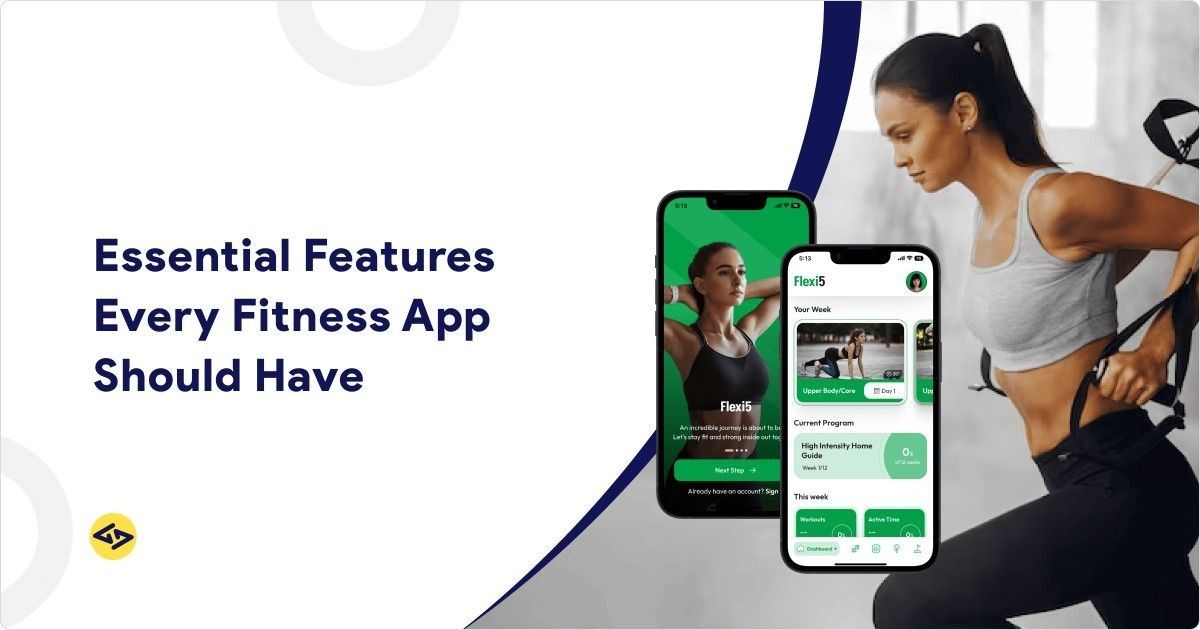The automotive service industry is experiencing a digital transformation that’s reshaping how vehicle owners access repair and maintenance services. The on-demand delivery market is projected to grow at a CAGR of 20.90% between 2024 and 2032, with automotive services representing a significant portion of this growth. Meanwhile, the global automotive repair and service market size crossed USD 714.51 billion in 2024 and is expected to grow at a CAGR of 4.18% from 2025 to 2033.
At iCoderz, we’ve witnessed firsthand how on-demand mechanic mobile applications are revolutionizing traditional automotive service models. From simple appointment booking to comprehensive vehicle maintenance ecosystems, these platforms are creating unprecedented opportunities for service providers while delivering unmatched convenience for vehicle owners.
This comprehensive guide explores everything you need to know about developing a successful on-demand mechanic mobile application, from essential features and technology choices to cost considerations and market strategies that drive real business results.
Why On-Demand Mechanic Apps Are Revolutionizing Automotive Services
The $714.51 Billion Automotive Service Market Opportunity
The shift toward on-demand services has created massive market opportunities in the automotive sector. The global automotive repair and service market has reached $714.51 billion in 2024, demonstrating the scalability and profitability of well-executed mechanic app platforms. According to Frost & Sullivan research, companies offering on-demand car care services could see customer satisfaction increase to 85% by 2024 as a result of innovations such as app-based booking and transparent pricing models.
Modern consumers expect the same level of convenience from automotive services that they receive from food delivery and ride-sharing apps. This expectation has created a gap in the market that forward-thinking businesses are filling with innovative mobile solutions.
Consumer Behavior Shift Toward Mobile-First Solutions
According to Statista’s market research, the online food delivery market in the United States was valued at approximately $353.3 billion in 2024, indicating the massive appetite for on-demand mobile solutions across all industries. Vehicle owners increasingly prefer mobile apps for:
- Real-time service tracking and updates
- Transparent pricing and instant quotes
- Convenient scheduling that fits their lifestyle
- Digital payment processing and receipt management
- Direct communication with certified mechanics
How COVID-19 Accelerated Contactless Auto Services
The pandemic fundamentally changed consumer expectations around contactless services. Mechanic apps that offer features such as contactless key exchange, digital inspections, and remote service monitoring have experienced exponential growth. These safety-focused features have evolved from pandemic necessities to permanent competitive advantages.
Essential Features Every Mechanic Mobile App Must Have
Core User Features for Vehicle Owners
Service Request and Booking System: An intuitive booking interface allows users to schedule services based on their location, preferred timing, and service type. Advanced apps include AI-powered recommendations based on vehicle history and maintenance schedules.
Real-Time GPS Tracking: Users expect to track their assigned mechanic’s location and estimated arrival time, similar to rideshare applications. This feature significantly reduces anxiety and improves customer satisfaction scores.
In-App Communication Tools: Integrated chat, voice, and video calling capabilities enable seamless communication between vehicle owners and mechanics, eliminating the need to share personal contact information.
Digital Payment Integration: Support for multiple payment methods, including credit cards, digital wallets, and buy-now-pay-later options. Include features for tipping, service add-ons, and transparent cost breakdowns.
Service History and Maintenance Tracking: Comprehensive vehicle maintenance records help users track their car’s health over time and receive proactive maintenance recommendations.
Advanced Mechanic Dashboard and Management Tools
Work Order Management: Mechanics need streamlined tools to view, accept, and manage service requests. Include features for updating job status, uploading progress photos, and documenting completed work.
Inventory and Parts Management: Integration with parts suppliers and inventory tracking enables mechanics to identify required components and provide accurate cost estimates before commencing work.
Scheduling and Route Optimization: AI-powered scheduling algorithms help mechanics maximize their daily efficiency by optimizing travel routes and minimizing downtime between appointments.
Digital Invoice and Documentation Tools: Mobile-friendly invoicing with digital signature capture, photo documentation, and automatic receipt generation streamlines the service completion process.
Admin Panel and Business Intelligence Features
Comprehensive Analytics Dashboard: Business owners need insights into key performance indicators, including revenue trends, mechanic utilization rates, customer satisfaction scores, and service completion times.
Quality Control and Review Management: Tools for monitoring service quality, managing customer reviews, and implementing improvement protocols based on feedback analysis.
Dynamic Pricing and Promotion Management: Flexible pricing models that can adjust based on demand, location, service complexity, and promotional campaigns.
Technology Stack for Modern Mechanic App Development
Frontend Development Technologies
Native Mobile Development: For optimal performance and user experience, we recommend native development using Swift for iOS and Kotlin for Android. Choosing native development gives you full access to device-specific features such as GPS, camera, and push notifications, while ensuring smooth performance and superior app responsiveness. This approach is ideal for businesses prioritizing speed, security, and scalability.
Cross-Platform Alternatives: For businesses with budget constraints, cross-platform development with React Native or Flutter can provide 70–80% code reusability while maintaining near-native performance. Leveraging cross-platform development not only reduces costs but also accelerates time-to-market by enabling a single codebase for iOS and Android.
According to Grand View Research, the automotive software market is experiencing rapid growth, with companies investing heavily in connected technologies, and integrating AI features is becoming increasingly important for competitive differentiation.
Backend Infrastructure and Database Solutions
Scalable Cloud Architecture: AWS, Google Cloud, or Microsoft Azure provides the robust infrastructure needed to handle variable demand and scale globally. Microservices architecture ensures individual components can scale independently based on usage patterns. The automotive software market is valued at USD 18.1 billion in 2024 and is estimated to register a CAGR of 10.9% between 2025 and 2034, driven by the increasing adoption of connected car technologies.
Database Design for Performance: PostgreSQL or MongoDB for primary data storage, with Redis for caching frequently accessed information like mechanic locations and service availability. This combination ensures fast response times even during peak usage periods.
Real-Time Communication and GPS Integration
WebSocket Implementation: Real-time features like live chat, location tracking, and instant notifications require WebSocket connections for immediate data synchronization between users and mechanics.
Advanced GPS and Mapping: Integration with Google Maps or Mapbox APIs provides accurate location services, route optimization, and estimated arrival times. Include geofencing capabilities for automatic service area management.
Payment Gateway and Security Implementation
PCI Compliance and Security: Integration with Stripe, PayPal, or similar payment processors ensures PCI DSS compliance while supporting a wide range of payment methods. Implement end-to-end encryption for all sensitive data transmission.
Multi-Layer Authentication: Two-factor authentication, biometric verification, and OAuth integration provide security without compromising user experience. Include fraud detection algorithms to identify and prevent suspicious activities.
Step-by-Step Development Process at iCoderz
Discovery and Market Research Phase
Our development process begins with a comprehensive market analysis to understand your target audience, competitive landscape, and unique value proposition. We conduct user interviews, analyze competitor apps, and identify market gaps that your application can address.
Key deliverables in this phase include:
- Detailed market research report
- User persona development
- Competitive analysis and feature comparison
- Technical requirements documentation
- Project timeline and resource allocation plan
UI/UX Design and Prototyping
User experience design is critical for on-demand applications where convenience and speed are paramount. Our designer team creates intuitive interfaces that minimize the steps required to book services while providing comprehensive information about mechanics and pricing.
Design process highlights:
- User journey mapping and wireframe creation
- Interactive prototype development
- Usability testing with target users
- Brand-consistent visual design implementation
- Accessibility compliance and multi-device optimization
Development Sprints and Quality Assurance
We follow agile development methodologies with two-week sprints that deliver working features for regular client review and feedback. This approach ensures the final product meets your exact specifications while allowing for iterative improvements throughout the development process.
Quality assurance procedures:
- Automated testing for core functionality
- Manual testing across multiple devices and operating systems
- Performance optimization and load testing
- Security vulnerability assessment
- User acceptance testing with real-world scenarios
Deployment and Post-Launch Support
A successful app launch requires careful coordination between app store submissions, backend deployment, and marketing initiatives. We provide comprehensive post-launch support to address user feedback, implement new features, and scale infrastructure based on actual usage patterns.
Mechanic App Development Cost Breakdown (2026)
Factors Affecting Development Pricing
Application Complexity and Features: Basic apps with essential features typically range from $25,000 to $50,000, while comprehensive platforms with advanced AI features, complex integrations, and custom admin dashboards can cost $75,000 to $150,000 or more.
Platform Selection Impact: Native iOS development and Android development cost approximately 40% more than a cross-platform solution, but provide better performance and user experience. The choice depends on your target audience and long-term scalability requirements.
Geographic Development Team Location: Development costs vary significantly based on team location. North American developers typically charge $100-$200 per hour, while experienced teams in Eastern Europe or South Asia offer comparable quality at $30-$80 per hour.
MVP vs Full-Featured App Investment
Minimum Viable Product Approach: Starting with an MVP allows you to validate market demand with essential features for $25,000-$40,000. Core MVP features typically include basic booking, payment processing, and communication tools.
Full-Featured Platform Investment: Comprehensive platforms with advanced features like AI-powered diagnostics, predictive maintenance, and multi-service provider management require $75,000-$200,000 investment but provide significantly higher revenue potential and market differentiation.
Ongoing Maintenance and Scaling Costs
Annual Maintenance Requirements: Plan for 15-25% of the initial development cost annually for maintenance, updates, and minor feature additions. This includes security updates, operating system compatibility, and performance optimization.
Scaling Infrastructure Costs: Cloud hosting costs scale with usage, typically starting at $200-$500 monthly for early-stage apps and increasing to $2,000-$10,000+ monthly for high-volume platforms serving thousands of users daily.
Success Stories: Apps Like GoMechanic and Wrench
Key Success Factors and Market Positioning
Successful mechanic apps focus on solving specific pain points in the automotive service experience. GoMechanic has achieved an annual revenue of ₹66.7 Crores as of March 2024, demonstrating success through transparent pricing, quality guarantees, and extensive service provider networks. Similarly, Wrench and other automotive startups are part of a growing ecosystem with over 1,159 automobile repair companies globally.
Critical success elements include:
- Clear value proposition that addresses real customer problems
- Robust quality control and mechanic vetting processes
- Competitive pricing with transparent cost breakdowns
- Strong brand building and customer trust development
- Efficient operations that ensure service reliability
Revenue Models and Monetization Strategies
Commission-Based Revenue: Most successful platforms charge mechanics 15-25% commission on completed jobs. This model aligns platform success with service provider success while ensuring consistent revenue streams.
Subscription and Premium Features: Additional revenue streams include mechanic subscription fees for premium features, priority booking access, and enhanced profile visibility. Some platforms also offer premium customer memberships with benefits like priority scheduling and discounted services.
Value-Added Services: Partnerships with parts suppliers, insurance companies, and vehicle manufacturers create additional revenue opportunities through referral fees and white-label service offerings.
User Acquisition and Retention Tactics
Digital Marketing and SEO: Successful apps invest heavily in search engine optimization, content marketing, and local SEO to capture customers searching for automotive services. Social media marketing and influencer partnerships also drive user acquisition.
Referral and Loyalty Programs: Customer referral programs with meaningful incentives can reduce acquisition costs by 20-30% while improving retention rates. Loyalty programs that reward repeat usage encourage long-term customer relationships.
Why Choose iCoderz for Your Mechanic App Development
Our Automotive Industry Expertise
iCoderz has developed over 50 automotive and transportation applications, giving us a deep understanding of industry-specific challenges and opportunities. Our app developer team includes automotive industry veterans who understand both the technical requirements and business dynamics, ensuring your solution is innovative, reliable, and market-ready.
Our expertise includes:
- 5+ years specializing in automotive mobile applications
- Successful launches in North American, European, and Asian markets
- Partnerships with major automotive service chains and independent providers
- Deep integration experience with automotive APIs and third-party services
- Proven track record of scalable, profitable platform development
Proven Development Methodology
Our development process combines agile methodologies with best practices from the automotive industry to deliver applications that meet stringent reliability and performance requirements. We prioritize security, scalability, and user experience in every development decision.
Development advantages:
- Dedicated project management and regular communication
- Transparent pricing with no hidden costs or scope creep
- Post-launch support and continuous improvement programs
- Integration with existing business systems and processes
- Compliance with automotive industry standards and regulations
Post-Launch Support and Scaling Services
Success in the on-demand service market requires continuous optimization and feature development based on user feedback and market evolution. We provide comprehensive post-launch services to ensure your platform remains competitive and profitable.
Ongoing support includes:
- Performance monitoring and optimization
- Feature development and platform enhancements
- Marketing and user acquisition strategy support
- Business intelligence and analytics implementation
- Technical support and maintenance services
Getting Started with Your Mechanic App Project
Initial Consultation and Project Scoping
Schedule a free consultation with our automotive app development experts to discuss your vision, target market, and business objectives. We’ll provide a detailed project assessment including feature recommendations, technology choices, and investment requirements.
Consultation process includes:
- Business model analysis and market opportunity assessment
- Technical requirements documentation and architecture planning
- Competitive analysis and differentiation strategy development
- Detailed project timeline and milestone planning
- Investment requirements and ROI projections
Timeline and Milestone Planning
Typical mechanic app development projects require 4-8 months from initial consultation to market launch, depending on feature complexity and integration requirements. We provide detailed milestone planning, along with regular progress reviews and opportunities for adjustment.
Standard project timeline:
- Weeks 1-2: Discovery and planning
- Weeks 3-6: UI/UX design and prototyping
- Weeks 7-16: Core development and testing
- Weeks 17-20: Integration and quality assurance
- Weeks 21-24: Deployment and launch preparation
Investment and ROI Expectations
Well-executed mechanic apps typically achieve break-even within 12-18 months of launch with proper marketing and operations execution. On-demand mechanic apps enable businesses to optimize their workflow and resource allocation. They can efficiently assign mechanics based on availability and proximity to service locations, minimizing idle time and maximizing productivity.
ROI considerations:
- Customer acquisition costs and lifetime value optimization
- Revenue per transaction and commission structure planning
- Geographic expansion and market penetration strategies
- Competitive positioning and pricing strategy development
- Long-term scalability and feature roadmap planning
Ready to transform your automotive service business with a custom on-demand mechanic mobile application? Contact iCoderz today for a free consultation and detailed project proposal. Our automotive app development experts will help you create a platform that drives real business results while delivering exceptional customer experiences.
Contact us now to discuss your project requirements and receive a detailed development proposal within 48 hours.
Launch Your Auto-Repair App Faster
Save time and costs with our ready-to-customize on-demand mechanic app solutions built for scalability and speed.




